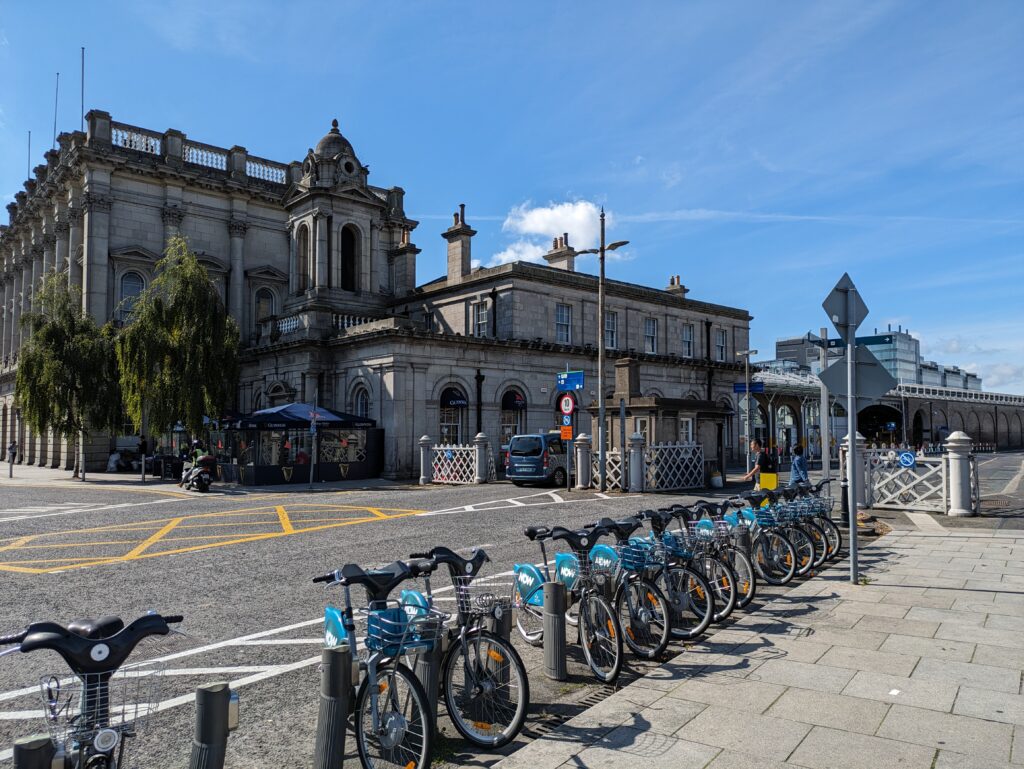■ 10月のコラム
■■ 情報理工学系研究科
■■■ 長谷川禎彦准教授
コロナが終わってから久しぶりに海外出張に出かけましたが、ここ10年間だけを考えても、海外に行くことが格段に簡単になったと改めて思いました。出国手続きは完全に自動化されており、非常にスムーズに行われるようになりました。また、普段使っているスマートフォンが海外でもそのまま使えるため、迷うシチュエーションもほぼなくなりました。スマートフォンがない時代だと、乗ったバスが本当に目的の行先に行っているのか不安でしたが、今はGoogle Mapを見ればその心配も完全になくなりました。英語以外の国でも、翻訳アプリで意思疎通が比較的簡単にできるようになり、現地の人が何を言っているかわからないということも少なくなりました。支払いも現金をほとんど使わなくてよくなったため、所持金が足りなくなるリスクもなくなりました。今後はAIなどの進化によってさらに海外に行くことが簡単になると思いますが、何か醍醐味も少しずつ失われているようで、以前の不便な海外出張が懐かしくなるような気がします。

ダブリン・ヒューストン駅
■ October Issue
■■ Graduate School of Information Science and Technology
■■■ Message from Associate Professor Hasegawa Yoshihiko
After the end of the pandemic, I went on an overseas business trip for the first time in a long while. Even when considering just the last ten years, I realized that traveling abroad has become significantly easier. The departure procedures have been completely automated and are now conducted very smoothly. Additionally, my smartphone, which I use regularly, works seamlessly abroad, reducing almost all situations where I would be uncertain.
In a time before smartphones, I used to worry if the bus I got on was really heading to my destination, but now, with Google Maps, that worry has completely disappeared. Even in countries where English is not spoken, communication has become relatively easy thanks to translation apps, and the fear of not understanding what the locals are saying has diminished. The use of cash for payments has also become minimal, eliminating the risk of running out of money.
I believe that in the future, further advancements in AI and technology will make traveling abroad even easier. However, it feels like some of the charm of traveling has gradually been lost, and I find myself nostalgic for the inconvenience of overseas trips in the past.


